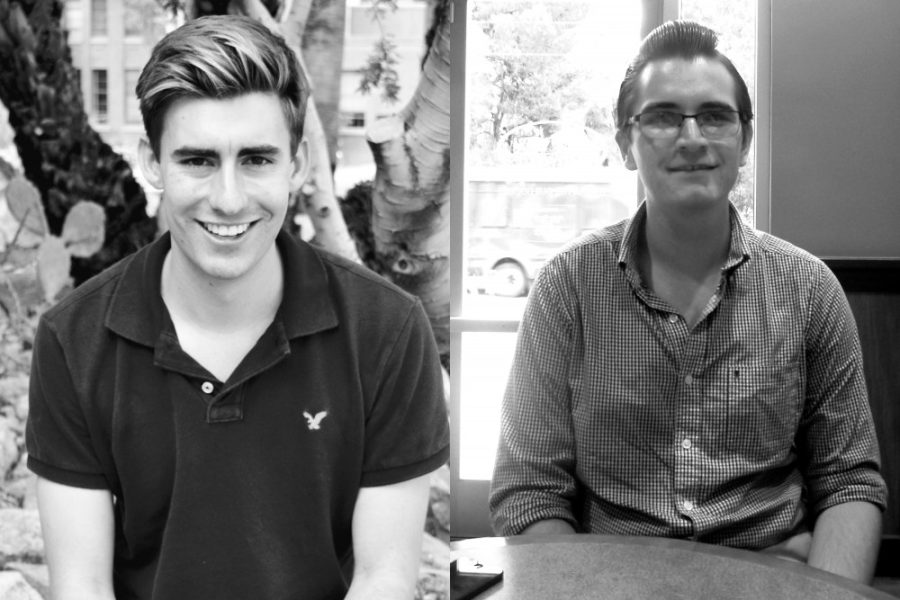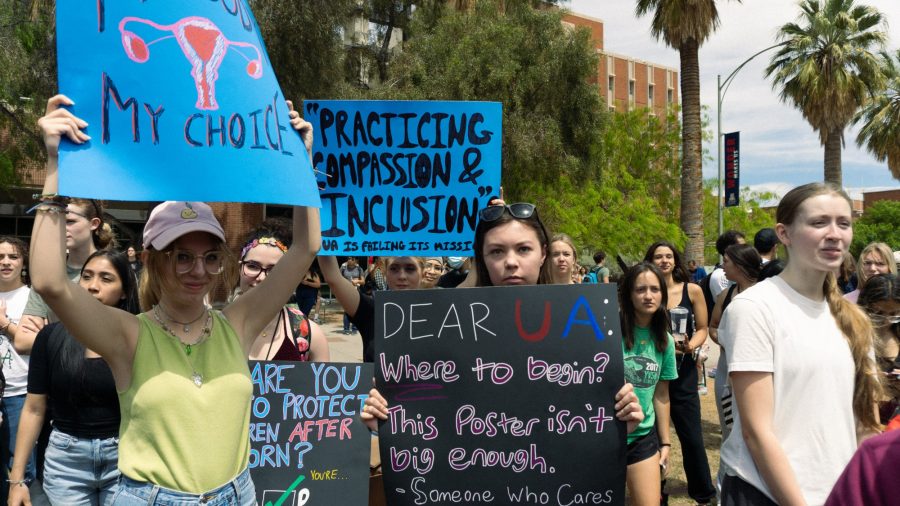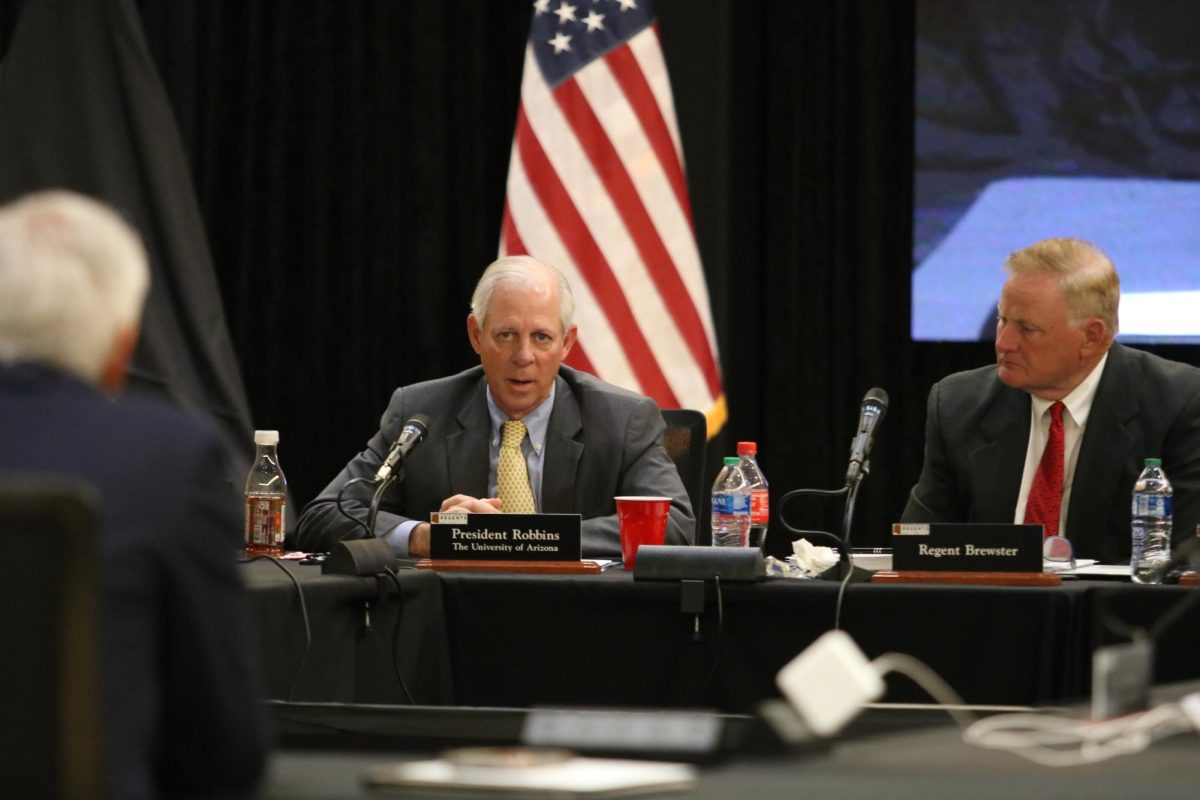The presidents of the UA College Republicans and the UA Young Democrats talk politics. Caleb Rhodes is president of the College Republicans and is a political science senior. Nick Mahon is president of the Young Democrats and is a senior studying Spanish and philosophy, politics, economics and law.
Daily Wildcat: What career do you plan on pursuing after graduation?
Rhodes: Ideally, I would like to go into a field where I could advocate for policies that would be beneficial to the community.
Mahon: Eventually, my dream job would be to help write progressive policy on either a state or federal level.
How do you think immigration should be dealt with in the U.S.?
Rhodes: I view immigration as a two-pronged issue. On the security side, we have a problem, because we have a border that has thousands of people coming across and it’s creating this huge humanitarian crisis. So, I think that the first step in this is to try and make the border more secure. Our primary focus has to be national security. But we are a nation built by immigrants, which means that we need to have a system that allows hard-working, lawful immigrants to come here and work. I think that we need to create more work visas to allow more people to come here legally, and we need to streamline the system to make the application process shorter. My opinion is if you’re hard-working, if you’ve not committed a crime and if you’ve gone through a background check, you should be allowed to come to this country and work. I also think that we need to staple green cards when people graduate from college. We want to bring the best and brightest to this country. So, that would be my first step toward solving this problem.
Mahon: The most pressing problem is that right now, there are 11 million undocumented workers and there is no real means for them to achieve legal status. In order to allow them to come out of the shadows and fully contribute, pay taxes, contribute to the economy and become Americans, there needs to be a pathway for those people to get legal visas and eventually citizenship. That’s priority one. The border is already heavily militarized, and although we need to be diligent to make sure that drug traffickers and other criminal organizations can’t funnel illegal activity across the border, quite frankly, we’ve spent enough money building fences, hiring border patrol agents and flying drones over the border. And at this point, money can be better spent elsewhere.
How do you think that we should make education more affordable?
Rhodes: I think a big part of the problem is that we need to recognize that there are different paths for people to achieve their education. Unfortunately, many people have been told that going to college is the only way to achieve a successful career, and for some people, that’s not the case. For some people, going to a community college is the right choice to get a technical degree. So, we need to expand the opportunities for people to go to trade schools to get degrees in technical education, and that will take some people who would go to college and really don’t need to go to college, and it would reduce demand for it overall. I think that’s part of the solution.
Mahon: Higher education is a state issue, so that means that the state of Arizona needs to make a commitment in higher education — and that really is just financially giving the U of A, NAU and ASU, and especially community colleges, more money to allow them to run the programs they’re running now and expand on those programs and decrease tuition costs. In the last 10 years, tuition has doubled at U of A, and the only reason for that is that the Republicans in the legislature cut education. There is no excuse for tuition doubling, and that’s just what happens when Gov. [Jan] Brewer and candidate [Doug] Ducey prioritize tax cuts over investing in education. On a national level, the student loan system needs to be reformed to provide more affordable payment plans and a lower interest rate. There is already legislation in place to do that, but it has been blocked. Those are the two things that need to be changed. On the state level, it needs to be properly funded, and on the national level, the interest rate has to be brought down.
What is your opinion about the militarization of police forces?
Rhodes: There is absolutely no reason that a police force needs a tank and assault rifles. As a society, that’s not what we want from our police forces. That’s for our military. Our government should never treat our citizens in inner cities like they treat foreign combatants in other countries. That’s ridiculous and needs to be curtailed. I think this is a nonpartisan issue. There is no reason anyone — Democrat or Republican — should be in favor of this.
Mahon: The militarization of police forces is an example of misplaced priorities. The money that’s going in to giving both campus police forces and city police forces militarized weapons and swat team-style gear is being misspent. That money should be invested in crime prevention programs, in mental health programs, and in drug and alcohol abuse programs. It shouldn’t be directed at further arming the police forces. I think it’s a gross waste of time, money and resources. We can see with cases like Michael Brown that it’s not effective and it’s not working.
_______________
Follow Christianna Silva on Twitter @christianna_j









